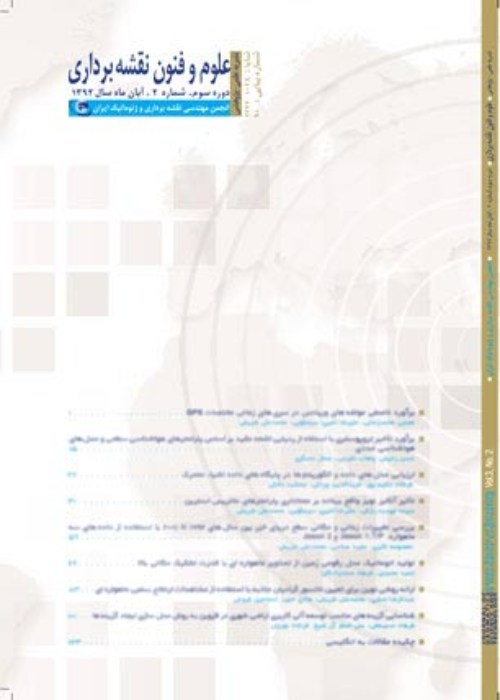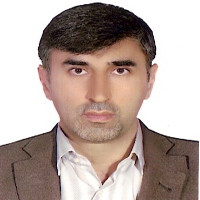Development of automatic updating spatial database by Volunteered Geographic Information
Author(s):
Abstract:
Modern cities require an optimum management of various spatial elements such as electrical distribution network, road network, urban servicing centers, and public facilities. Spatial information usually is stored in a geodatabase for a better data accessing, removing, adding, and transferring. Capital cities, generally, are experiencing many changes with respect to construction and land use. Tourism services quality, location and characteristics may change in such cities too. An example of such changes can be observed in restaurants. Thus, updating such geodatabases is very necessary, to gain tourists trusts in using a tourism application services (e.g. an application about finding desire restaurants). Traditional or authorized data acquisition’s methods consume huge amount of time and money, while Volunteered Geographic Information (VGI) are almost free of such limitations. Therefore, VGI has been considered as an alternative solution for some applications which do not require much money or have to be updated during a real time process. VGI has also been widely used when application developers expect automatic performance of a system. The aim of this paper is to put the capability of automatic updating to a geodatabase of restaurants information by Volunteered Geographic Information in practice. To do so, a mobile application has been built to collect volunteers’ data, but all input information should be confirmed for data qualification. Thus, the application should filter VGI data based on their quality. Therefore, VGI quality should be assessed first, and then the data with acceptable quality should be chosen and used in geodatabases. VGI quality inherits spatial data quality characteristics. Hence, it is multidimensional and includes various elements (e.g. positional accuracy, thematic accuracy, temporal accuracy, completeness, logical consistency and etc.) which are different in every application. In this paper positional accuracy, temporal accuracy, thematic accuracy and credibility are considered as effective elements of VGI quality. These elements should be integrated, because the geodatabase require an explicit parameter so as to decide which data deserves to join others. In such cases, Multi Criteria Decision Making (MCDM) methods can be useful for deciding how to integrate criteria to get realistic results. As experts from various fields evaluate the quality of elements, recognizing most important criteria is hard and it is arduous to specify weighs for each element. So, it is required to employ a method that decreases the effect of weighting criteria in MCDM operation. In this paper, among MCDM methods, Ordered Weighted Averaging fuzzy quantifier guided operator is selected to merge VGI quality elements and assess final quality. The proposed method tests various scenarios and help decision makers to decrease weighting effect. After testing the mobile application, final results demonstrated that the application is successful in completing information of 60% of restaurants. As a conclusion of the research, it is cleared that high thematic VGI quality will prevent errors in populated restaurants area.
Keywords:
Language:
Persian
Published:
Journal of Geomatics Science and Technology, Volume:5 Issue: 1, 2015
Pages:
43 to 53
https://magiran.com/p1460803
دانلود و مطالعه متن این مقاله با یکی از روشهای زیر امکان پذیر است:
اشتراک شخصی
با عضویت و پرداخت آنلاین حق اشتراک یکساله به مبلغ 1,390,000ريال میتوانید 70 عنوان مطلب دانلود کنید!
اشتراک سازمانی
به کتابخانه دانشگاه یا محل کار خود پیشنهاد کنید تا اشتراک سازمانی این پایگاه را برای دسترسی نامحدود همه کاربران به متن مطالب تهیه نمایند!
توجه!
- حق عضویت دریافتی صرف حمایت از نشریات عضو و نگهداری، تکمیل و توسعه مگیران میشود.
- پرداخت حق اشتراک و دانلود مقالات اجازه بازنشر آن در سایر رسانههای چاپی و دیجیتال را به کاربر نمیدهد.
In order to view content subscription is required
Personal subscription
Subscribe magiran.com for 70 € euros via PayPal and download 70 articles during a year.
Organization subscription
Please contact us to subscribe your university or library for unlimited access!



